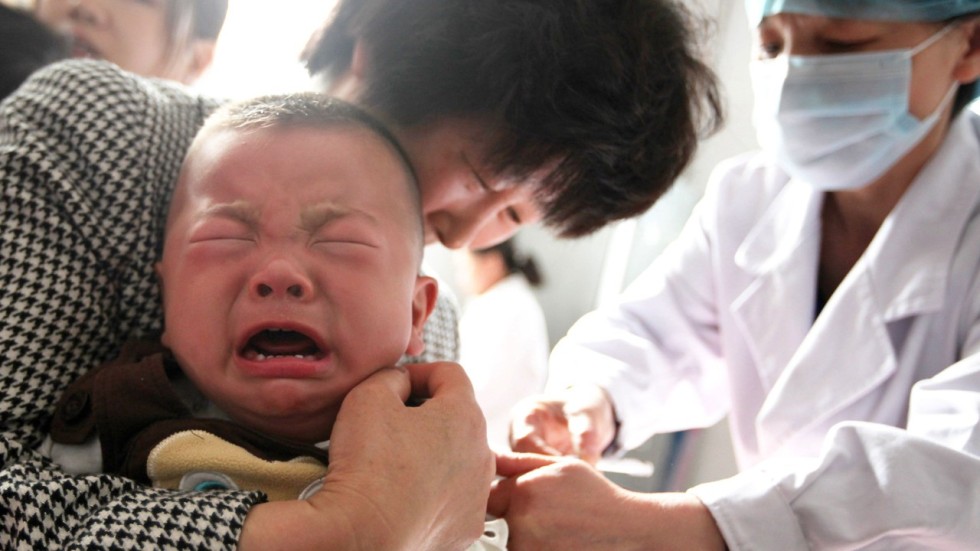Vaccine scandal gripping China could cause serious problems for the government
July 26, 2018
Stories of mismanagement and regulatory violations are hardly uncommon in China. But for the past two weeks, a scandal surrounding a vaccine manufacturer has gripped the attention of millions of people across the country — and sparked dissatisfaction that could seriously damage the government's legitimacy, experts say.
It started July 15, when government inspectors found that Changchun Changsheng Biotechnology, China’s second-largest maker of rabies vaccines, had forged reports and violated regulations while producing 250,000 doses of rabies vaccines for humans, the South China Morning Post reported. Within days, Changsheng suspended production of the vaccine and recalled the product from disease-prevention organizations. As of Thursday, there had been no reported injuries or illnesses associated with the shots distributed by Changsheng.
But on July 20, when reports of Changsheng’s violations emerged, they quickly went viral on Chinese social media. Despite apparent attempts to censor posts about the scandal, a hashtag on the issue had been read more than 600 million times by Monday, Reuters reported.


Pundits and media outlets began describing the incident as the worst public-health scandal in years, and Chinese Premier Li Keqiang released a statement vowing to crack down on lawbreakers. On Monday, Chinese President Xi Jinping took time during a state tour through Africa to address the situation, calling it “appalling.”
The explosive reaction from citizens has surprised some analysts, especially given that regulatory violations are neither new nor rare in China’s scandal-ridden pharmaceutical industry. Experts say one reason this violation has struck a chord is that it threatens what many Chinese value more than anything else: their children.
According to the World Health Organization, rabies was endemic throughout most of China until the 1990s. While the country still has the second highest number of reported rabies cases in the world, the government has been working to significantly expand the country's immunization program, meaning that nearly all Chinese children have received vaccines similar to the ones administered by Changsheng.
 A child receives a vaccination shot at a hospital in Rongan in China's southern Guangxi region on July 23. (Getty Images/AFP)
A child receives a vaccination shot at a hospital in Rongan in China's southern Guangxi region on July 23. (Getty Images/AFP)
The backlash from Chinese parents is somewhat reminiscent of the 2008 milk scandal, during which it was discovered that several food items, including infant formula, had been contaminated with a chemical called melamine. Like the milk scandal, the current vaccine controversy is becoming a much larger discussion about the country's public-health system, said Xi Chen, an assistant professor of public health at Yale University.

While people are angry at “every part of this chain,” Chen said, they are growing particularly bitter at regulatory bodies and government leaders who have a poor record of keeping companies in line. Posts on Sina Weibo, China's equivalent of Twitter, pointed out that the Chinese premier made similar vows to clean up the pharmaceutical industry after another vaccine scandal two years ago.
“As Chinese, we probably should have confidence in our country, but getting hurt again and again has made us lose faith,” Huo Xiaoling, a 37-year-old Chinese mother whose daughter received a Changsheng vaccine, told the New York Times.
“The incident, if not properly handled . . . could evolve into a legitimacy crisis," said Yanzhong Huang, an adjunct senior fellow for global health at the Council on Foreign Relations. “The environment, corruption, food safety and now vaccines. These things add up and they can really pose challenges to government legitimacy.”
Read more:
No comments:
Post a Comment
Comments always welcome!